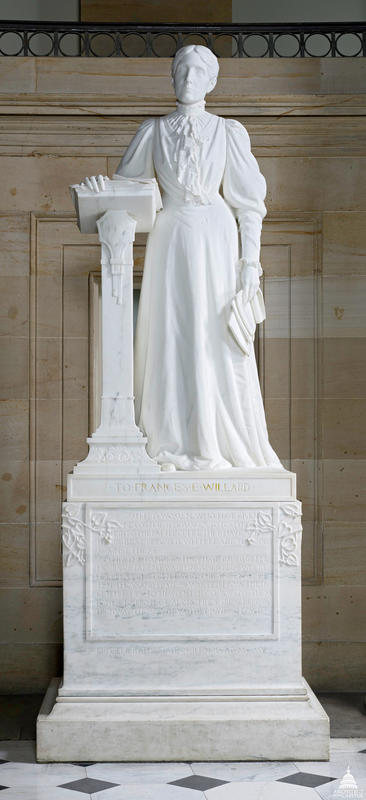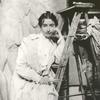More about Frances E. Willard

Contributor
Frances E. Willard is one of the countless women you may have never heard of, but who are foundational to modern day civil rights.
Even in this era of newfound appreciation for the unsung pioneers of civil rights, Frances E. Willard is still likely to fly under the average intellectual’s radar. As a Methodist Christian, Willard's rap sheet shows a lot of ideas involving temperance, and one could be forgiven for thinking that she was just some anti-liquor prude. While she did believe deeply in the evils of alcohol and was an active proponent for prohibition, Willard was also a progressive voice advocating for women's equality, safety, and say in both culture and politics.
As far as doctrine goes, Methodists are actually some of the most inclusive and progressive of any North American Christian denomination (Beyoncé was raised Methodist...but before you get too excited, so was Ted Bundy). Coming from a family of educators, Willard was encourage to pursue higher education, and eventually also became a teacher. She taught in a number of schools in Illinois, Pennsylvania, and New York before becoming the first female president of a college granting degrees to women in 1871. This institution was Evanston College for Ladies before becoming the Women's College of Northwestern University in 1874, of which Willard became Dean.
In 1874, Willard left higher education for the temperance movement, and helped founded the Woman’s Christian Temperance Union (WCTU). In 1891, Willard was elected president of the WCTU, and helped to shape the group into the largest organization of women in the United States, expanding the group's activities to include labor and prison reform. The WCTU even fought to ameliorate conditions for sex workers, including a movement that aimed to raise the Age of Consent. Willard would serve as president for nineteen years, promoting unlimited aspirations for women: higher education, choice of vocation, and equal opportunity. And of course, she rallied against "devastation caused by the legalized traffic in strong drink."
In 1900, Mears was commissioned by the State of Illinois to honor Willard. Mears created the detailed model from clay and cast it in plaster before having the Piccirilli Brothers create the final marble statue. Willard's portrait was the first to honor a woman in the National Statuary Hall Collection of the U.S. Capitol.
Sources
- Oshkosh Public Museum. “Photo Record.” Frances Willard Statue - P1962.2.66. Oshkosh Public Museum. Accessed April 14, 2021. https://oshkosh.pastperfectonline.com/photo/87170B03-9EA7-426F-B91E-597….
- History.com Editors “Women’s Suffrage” History.com 08/03/2020 https://www.history.com/topics/womens-history/the-fight-for-womens-suff…
- Lewis, Jone Johnson “Biography of Frances Willard, Temperance Leader and Educator” Thought Co. 05/15/19 https://www.thoughtco.com/frances-willard-biography-3530550
- Quinn, Gwendolyn “Beyoncé Teams Up With Houston Pastor to Help Harvey Survivors” NBC News 09/09/17 https://www.nbcnews.com/news/nbcblk/houston-pastor-beyonc-team-help-har…
- Website Contributor “Frances E. Willard” National Woman’s Hall of Fame viewed on 09/23/2020 https://www.womenofthehall.org/inductee/frances-e-willard/
Featured Content
Here is what Wikipedia says about Statue of Frances Willard
Frances E. Willard is a marble sculpture depicting the American educator, temperance reformer, and women's suffragist of the same name, created by Helen Farnsworth Mears and installed in the United States Capitol's National Statuary Hall, in Washington, D.C., as part of the National Statuary Hall Collection. The statue was given by the U.S. state of Illinois in 1905, making Willard the first woman to be honored in the collection.
Check out the full Wikipedia article about Statue of Frances Willard












